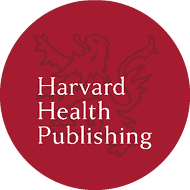Reducing Food Insecurity: A Recipe for Health
It can be difficult for people to take care of their health when they don’t have enough nutritious food to eat. Yet today, more than 10% of U.S. households are grappling with food insecurity, and many people of them don’t qualify for public assistance.
People who experience food insecurity are at increased risk for a host of health problems, including diabetes, obesity, cardiovascular disease, and depression. They may also have more difficulty managing such conditions once they occur. Therefore, ensuring access to nutritious foods is critical for whole health, according to A. Enrique Caballero, MD, Director of Latino Diabetes Health in the Division of Endocrinology at Brigham and Women’s Hospital, Director of Diabetes Education in the Postgraduate Medical Education Department, and Associate Professor of Medicine at Harvard Medical School.
“Despite the greatest scientific advances in the field of diabetes and other chronic conditions, most people with diabetes have not been able to meet their treatment goals,” said Caballero. He explained that health system stakeholders, including healthcare systems, healthcare professionals, and payers, must pay attention to social drivers of health in order for people to to successfully prevent and manage health conditions.
Screening and Referral to Local Services
The Food Bank of Western Massachusetts will receive $500,000 over four years from Mass General Brigham Cooley Dickinson Hospital to address the problem of food insecurity in that part of the state.
About 14% of children who live in Cooley Dickinson’s service area are at risk of not having enough to eat, according to data from Feeding America, which runs a network of food banks across the nation. And more than one-third of these children and their families may not qualify for federal nutrition assistance.
That’s why Cooley Dickinson Hospital is partnering with The Food Bank, which supplies foods to area pantries, to connect people to local food resources and other essential support. Referrals are currently made through one of Cooley Dickinson’s primary care centers, and more referral locations are slated to follow.
The grant also funds a food assistance referral coordinator position through The Food Bank to help eligible individuals navigate their options, said Cooley Dickinson spokesperson Christina Trinchero. While the program is still in its early stages, The Food Bank estimates that the new coordinator could assist 800 people over the four-year grant period. All told, the health system partnership with The Food Bank could benefit thousands of people since many of the people directly served live in households with other family members.
People referred to The Food Bank can receive more than access to food. “They will also be connected to services that address the underlying causes of food insecurity—such as housing, childcare, and job training,” said Alan Dallmann, Hunger Solutions Innovator for the Food Bank.
Removing Barriers that Limit Access to Food
Another effort to address food insecurity was recently launched by Harvard-affiliated Boston Children’s Hospital in partnership with the Boston Housing Authority. This new initiative is called Family Food Connections to highlight the many connections that families make through food. It renovated an existing food pantry located directly inside a public housing development in the Jamaica Plain neighborhood of Boston to make it more accessible to the people it serves.
Providing a vibrant food pantry near people’s homes removes an important barrier to access. The pantry offers a variety of fresh and nutritious foods, including allergy-free and gluten-free offerings. It also allows people to select items and try new foods based on their own cultural and personal preferences, rather than receiving a donation of food that’s been chosen for them. This gives individuals and families more control over their own health.
The welcoming pantry space offers nutritional advice and healthful recipes. It also connects individuals with other local services, such as cooking classes and food access programs.
“Since the program opened in January 2022, we have already greeted 900 unique families who have made more than 3,600 visits,” said Shari Nethersole, MD, a pediatrician and Vice President of Community Health and Engagement at Boston Children’s. “We estimate about 17,500 pounds of food has been distributed each week, which includes about 3,500 pounds in produce and vegetables.” About one-third of families who visit the food pantry are referred from Boston Children’s clinics and programs, while the other two-thirds are residents of the housing development and the surrounding community.
Building on Community Partnerships to Address Social Drivers of Health
“Family Food Connections is one strategy that illustrates Boston Children’s commitment to working with community partners to address the social drivers of health and support the whole health of families. Our goal is to ensure that children not only have access to needed medical care and treatment, but also that families have access to the resources and support they need so their children can lead healthy and active lives,” Nethersole said.
Programs like Family Food Connections can serve as a scalable model for how community-based partnerships can implement solutions that help address factors that drive whole health.

